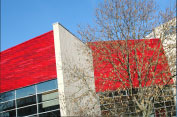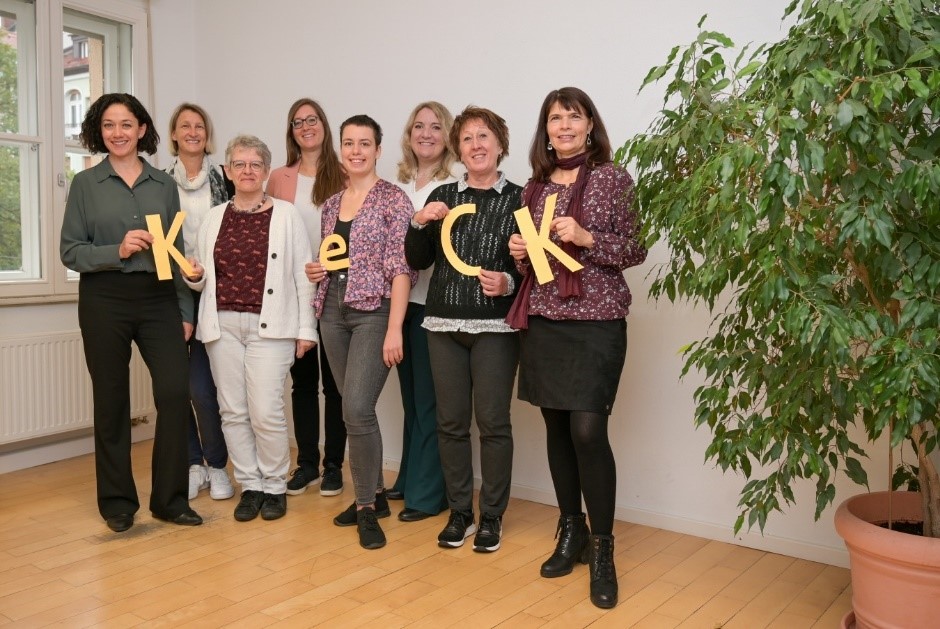

You will find information and news (now somewhat older) on the topics of equal opportunities, gender & diversity here.
On 7 November 2022, the Süddeutsche Zeitung published an article entitled "Equal opportunities - How female doctors make a career". Within the context of the 10th anniversary of KeCK, Dr Barbara Cramer (chair) was interviewed on the topic of equal opportunities at the Klinikum as well as the developments and successes over the past 10 years.
The full article can be found free of charge here.

In September 2022, the Committee for Maternity Protection at the Federal Ministry for Family Affairs, Senior Citizens, Women and Youth (BMFSFJ) updated itsrecommendation on the maternity protection assessment of risks from SARS-CoV-2. The information on the scientific and legal assessment of maternity protection with regard to SARS-CoV-2 includes the requirements of the Maternity Protection Act and occupational health protection for pregnant and breastfeeding employees.
The paper is intended as a recommended handout for employers; however, it can also serve as a source of information for other interested parties (especially pregnant and breastfeeding women, company doctors). It is intended as a compilation of scientific and legal assessments and thus as a contribution to a decision-making basis that is as uniform as possible throughout Germany.
The paper in its entirety can be found here.
Leopoldina, the national academy of sciences, published a statement on the situation of women in science in September 2022. Based on a review of the current situation, developments are traced, and recommendations are made for the equality of men and women in the science system.
The statement makes it possible to distinguish general trends from the specifics of the science enterprise and to make recommendations that are focused on the specific structures and functioning of the science system. It outlines the historical development, names omissions and problems, yet also illustrates what progress has already been made towards gender equality. The statement in its entirety can be found here.
In 2022, the German Medical Women’s Association (Deutscher Ärztinnenbund e. V. / DÄB) is publishing another documentation of the proportion of women in leadership positions in clinical departments of German university medicine. Once again, the unchanged small proportion of women in medical leadership positions is demonstrated: The number of female managers (clinic directors) has not changed since 2019; it is again only 13% on average, with shifts within the ranking of the individual departments. The percentage of female senior physicians has increased from 31% (2016) to 37%. This increase affected nearly all subjects surveyed and was particularly marked in urology, surgery, and neurology.
Documentation from 2016 and 2019 can be found on the website of the German Medical Women's Association: www.aerztinnenbund.de

In December 2021, Prof. Dr Ulrike Lembke (Humboldt University Berlin) was commissioned by the City of Hanover to prepare alegal opinion on gender-equitable official language. The legal expertise examines the question of what effects the use of gender-equitable language, in particular the gender star, has on the legal effectiveness and the binding nature of forms of action by the administration.
According to the expertise, no (negative) influence on the effectiveness or binding nature of administrative action can be proven. On the contrary,gender-equitable language increases its constitutional conformity and represents a consistent implementation of constitutional requirements.
The report refers to scientific findings of numerous linguistic studies on the discrimination of women through the use of the generic masculine as well as on psychological burdens of inter*, trans* and non-binary persons through the use of purely binary personal designation.Current studies also show that the use of the gender star is the most suitable of all gender-inclusive forms for ensuring the accessibility of gender-equitable language.
A summary (in German) of the main findings and the full report can be found here.
“Language.Power.Gender. (Sprache.Macht.Geschlecht.)How do sex and gender determine social interaction, linguistic interaction and private and professional life – and vice versa?"
Recorded lecture videos are available online for members of most universities.
The online ring lecture is dedicated to the everyday category of "gender", which is to be examined from linguistic, sociological, psychological, and cultural perspectives. The objective is to define the category from the standpoint of individual disciplines and to grasp its significance for linguistic and social interaction, on cultural life as well as on private and professional life. The topic is subject to continuous change – this makes the lecture series extremely topical for society.
The programme of the lecture series and the access data can be found here.
In May 2020, the Alliance of Gender Equality Officers of Non-University Research Organisations (AGbaF) and bukof jointly conducted a survey among women's and gender equality actors in non-university research institutions and universities as part of the joint working group "Gender Policy in the Times of COVID-19".
This was prompted by the startling findings about the reinforcement of the structural discrimination of female scientists and other status groups in the respective organisations since the beginning of the COVID-19 pandemic. The objective of the survey launched in May 2020 was to obtain a solid data basis from the respective organisations on the gender equality situation and a basis for gender equality-oriented need for action through standardised enquiries and thus quantifiable feedback.
The results of the survey are now available in pdf format and on the bukof website: https://bukof.de/service/corona-gleichstellung-und-hochschule-in-der-pandemie/
20-07-01 Ergebnisse Umfrage AG Geschlechterpolitik in Zeiten von Corona.pdf